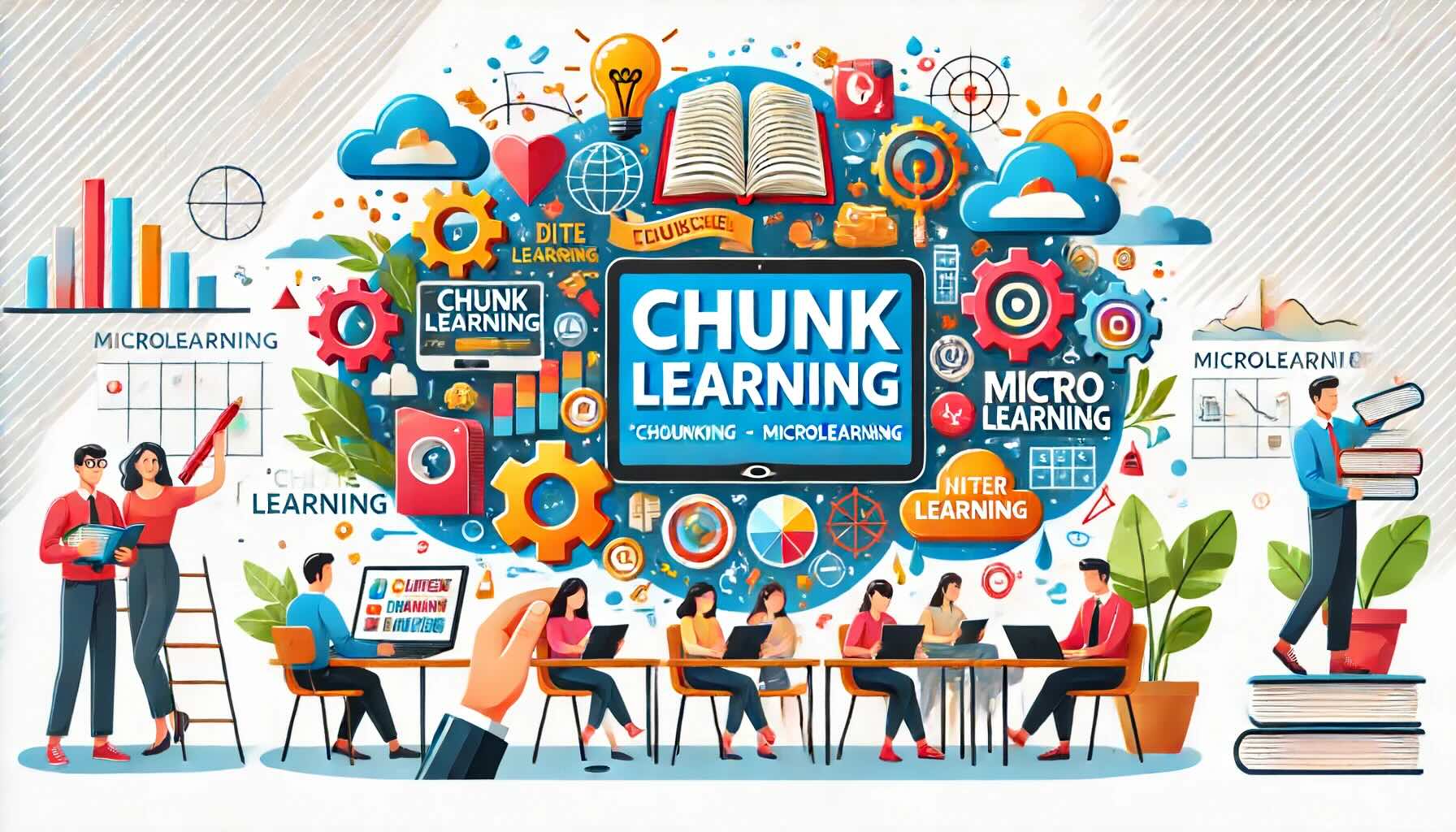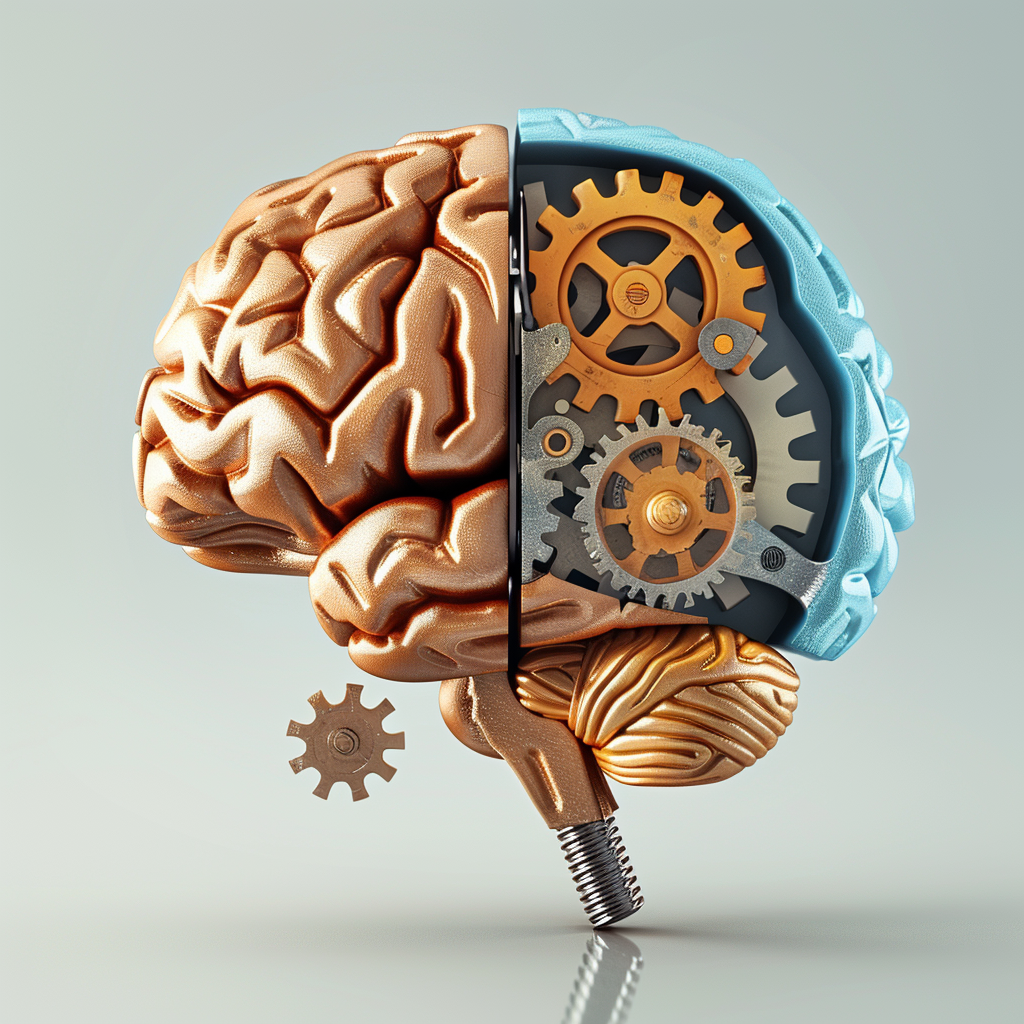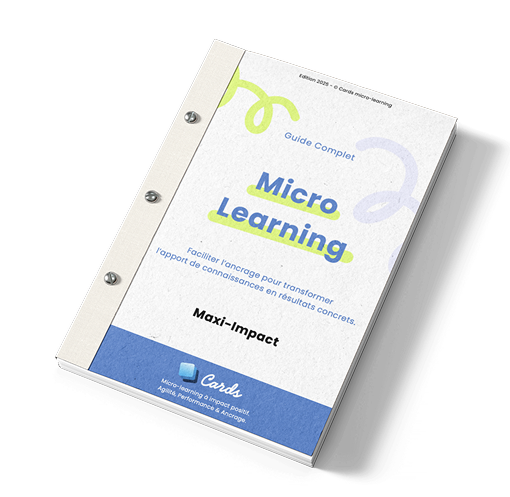Spaced Rehearsal
Spaced repetition is a proven method for improving knowledge retention. By spacing out the review sessions, we allow the brain to strengthen neural connections.
- Practical example : Use flashcards to review information at increasing intervals (1 day, 3 days, 7 days, etc.).
- Advantage : Reduces the forgetting curve and improves long-term memory.
Multisensory Learning
Engaging multiple senses in the learning process can strengthen neural connections and improve knowledge retention.
- technics : Use visual (diagrams, infographics), auditory (podcasts, discussions) and kinesthetic (models, practical experiences) supports.
- Advantage : Facilitates comprehension and memory by involving several areas of the brain.
Immediate Feedback
Providing immediate feedback helps learners correct mistakes and reinforce correct learning.
- example : Use interactive quizzes with explanations for each answer.
- Advantage : Reinforces correct knowledge and rectify errors in real time.
The Active Review
Active review involves learners in activities that require them to reflect and use the information they have learned.
- Methods : Questioning techniques, group discussions, case studies.
- Advantage : Stimulates critical thinking and a thorough understanding of concepts.
Gamification
Incorporating game elements into learning can increase learner engagement and motivation.
- Examples : Point systems, badges, levels, challenges.
- Advantage : Makes learning more engaging and motivating, which can improve knowledge retention.
Impact and Use of Micro-learning Cards
Integrating the Cards micro-learning solution into knowledge retention strategies offers significant benefits for publishers and learners. By providing short and targeted modules, Cards micro-learning allows learners to review information on a regular and spaced basis, thus optimizing memory anchoring. For publishers, the platform facilitates the creation and distribution of engaging educational content, ensuring effective knowledge absorption.
The use of Cards micro-learning reinforces learners' engagement through interactive activities and quizzes, offering immediate feedback. This approach contributes to maintaining learners' motivation while ensuring a deep and lasting understanding of the concepts. By taking advantage of the benefits of microlearning, organizations can significantly improve knowledge retention and the effectiveness of continuing education.
--
Optimizing knowledge retention requires the application of varied and effective strategies. By using techniques such as spaced repetition, multisensory learning, immediate feedback, active review, and gamification, educators can significantly improve the memory and practical application of the knowledge they have learned.







